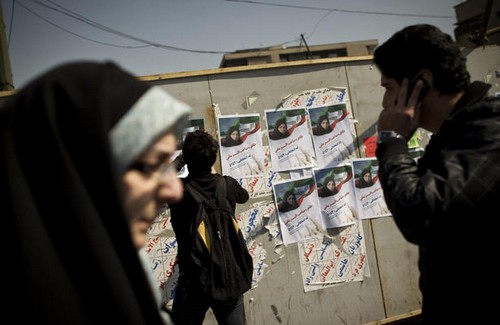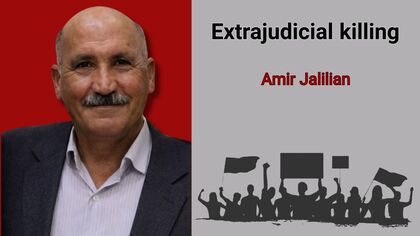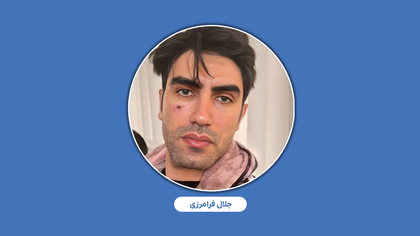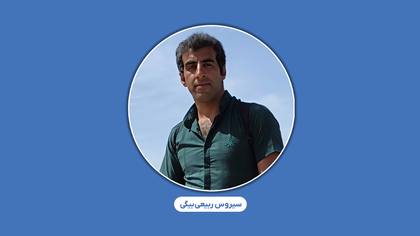Economy, not the vote, occupies Iranians’ mind
13:35 - 1 March 2012

For months now, Iranians have endured economic hardship, political repression and international isolation as the authorities refuse to halt sensitive nuclear work as demanded by the UN Security Council.
Many ordinary people are not concerned which faction will win the vote—loyalists of Supreme Leader Ayatollah Ali Khamenei or supporters of President Mahmoud Ahmadinejad.
Upset over the re-election of Ahmadinejad in a 2009 presidential poll they say was rigged, leading pro-reform groups have stayed away from the ballot.
“I am not planning to vote. How can I ever think of anything when I am about to go bankrupt?”, said Mohebi, 48, pointing at his shop with no customers.
“I have no been able to sell any fabrics this week. People have no money to spend. Even before Norouz (Iranian new year that starts on March 21).”
Ahmadinejad cut fuel and food subsidies in 2010 to save $100bn on the state budget and to make Iran less vulnerable to any sanctions on fuel imports. Critics say the move stoked inflation and increased prices.
International sanctions and the government’s elimination of subsidies have led to a fear among many Iranians that life will get worse. The US and the EU have imposed new sanctions on Iran’s financial and oil sectors to force Tehran to agree to halting its sensitive nuclear work.
Despite public dismay at the state of the economy in cities, Iranians in rural areas seem set to vote. “It is my duty to vote as a citizen. I want my voice to be heard,” said Reza Taheri, 23, who owns a newsstand in the southern city of Shiraz.
“My business is good. People read newspapers to learn about the government’s economic decisions. I sell more economic newspapers than before.”
Merchants and clerics, who played a major role in mobilising unrest to topple the US-backed shah in 1979, have been sidelined since the 2009 vote.
Having distributed monthly cash subsidies $38 per person to working-class Iranians, Ahmadinejad’s camp hopes to secure an election victory on Friday’s vote.
Prices of most consumer goods have risen and many middle and lower-class Iranians already struggle to make ends meet. But the amount does not compensate for the high cost of living in major cities.
“My electricity bill has trippled and this amount of $38 does not even compensate for this bill,” said government employee Mohsen Mirzaie, 37, father of two with a monthly salary of $600.
Thousands of Iranian workers have become jobless in the past months as small businesses had to shut down because of rising prices of raw material and utilities, Iranian websites report.
The West says Iran’s nuclear program is a cover to build bombs. Oil producer Iran says it needs nuclear technology to generate electricity.
The sanctions coupled with high inflation and fear of a military strike, have created fear among ordinary Iranians around the country. Iran’s leaders deny that sanctions are having an economic impact.
“There is no money in the people’s pockets. My business is ruined. How can I live like this,” said Qorbanali Hemmat, a florist in the central city of Qazvin. “People don’t spend money for flowers when they are struggling to make ends meet.”
“Politics is for rich people. People like me think about how to put bread on their family’s table.”
Subsidy cutbacks have tripled the price of electricity, water and natural gas used for factories, cooking and heating homes.
Mehdi Mir-Abdollahian, the secretary of the Association of Tehran Province Industrialists, said some 25% of the province’s industrial factories were closed, 16% were about to shut down and 21% were half active.
The unemployment rate officially stands around 11%. Critics of Ahmadinejad accuse his government of publishing false figures. Rents are soaring and annual inflation hovers around 21%, and the poverty line is $600 in Iran.
“Our boss fired about half of my colleagues right before the (Iranian) new year. Some of them had been working for him more than five years,” said Mana, 35, who works for a private import-export company.
“Our boss says he wants to move abroad since he cannot make any profits in Iran.”
The last time Iranians voted was in 2009. Ahmadinejad’s disputed victory sparked eight months of violent street protests.
The authorities suppressed the uprising, but since then the Arab Spring has demonstrated the vulnerability of governments in the region to uprisings fuelled by anger over economic hardship.
Source - Reuters/Tehran
Many ordinary people are not concerned which faction will win the vote—loyalists of Supreme Leader Ayatollah Ali Khamenei or supporters of President Mahmoud Ahmadinejad.
Upset over the re-election of Ahmadinejad in a 2009 presidential poll they say was rigged, leading pro-reform groups have stayed away from the ballot.
“I am not planning to vote. How can I ever think of anything when I am about to go bankrupt?”, said Mohebi, 48, pointing at his shop with no customers.
“I have no been able to sell any fabrics this week. People have no money to spend. Even before Norouz (Iranian new year that starts on March 21).”
Ahmadinejad cut fuel and food subsidies in 2010 to save $100bn on the state budget and to make Iran less vulnerable to any sanctions on fuel imports. Critics say the move stoked inflation and increased prices.
International sanctions and the government’s elimination of subsidies have led to a fear among many Iranians that life will get worse. The US and the EU have imposed new sanctions on Iran’s financial and oil sectors to force Tehran to agree to halting its sensitive nuclear work.
Despite public dismay at the state of the economy in cities, Iranians in rural areas seem set to vote. “It is my duty to vote as a citizen. I want my voice to be heard,” said Reza Taheri, 23, who owns a newsstand in the southern city of Shiraz.
“My business is good. People read newspapers to learn about the government’s economic decisions. I sell more economic newspapers than before.”
Merchants and clerics, who played a major role in mobilising unrest to topple the US-backed shah in 1979, have been sidelined since the 2009 vote.
Having distributed monthly cash subsidies $38 per person to working-class Iranians, Ahmadinejad’s camp hopes to secure an election victory on Friday’s vote.
Prices of most consumer goods have risen and many middle and lower-class Iranians already struggle to make ends meet. But the amount does not compensate for the high cost of living in major cities.
“My electricity bill has trippled and this amount of $38 does not even compensate for this bill,” said government employee Mohsen Mirzaie, 37, father of two with a monthly salary of $600.
Thousands of Iranian workers have become jobless in the past months as small businesses had to shut down because of rising prices of raw material and utilities, Iranian websites report.
The West says Iran’s nuclear program is a cover to build bombs. Oil producer Iran says it needs nuclear technology to generate electricity.
The sanctions coupled with high inflation and fear of a military strike, have created fear among ordinary Iranians around the country. Iran’s leaders deny that sanctions are having an economic impact.
“There is no money in the people’s pockets. My business is ruined. How can I live like this,” said Qorbanali Hemmat, a florist in the central city of Qazvin. “People don’t spend money for flowers when they are struggling to make ends meet.”
“Politics is for rich people. People like me think about how to put bread on their family’s table.”
Subsidy cutbacks have tripled the price of electricity, water and natural gas used for factories, cooking and heating homes.
Mehdi Mir-Abdollahian, the secretary of the Association of Tehran Province Industrialists, said some 25% of the province’s industrial factories were closed, 16% were about to shut down and 21% were half active.
The unemployment rate officially stands around 11%. Critics of Ahmadinejad accuse his government of publishing false figures. Rents are soaring and annual inflation hovers around 21%, and the poverty line is $600 in Iran.
“Our boss fired about half of my colleagues right before the (Iranian) new year. Some of them had been working for him more than five years,” said Mana, 35, who works for a private import-export company.
“Our boss says he wants to move abroad since he cannot make any profits in Iran.”
The last time Iranians voted was in 2009. Ahmadinejad’s disputed victory sparked eight months of violent street protests.
The authorities suppressed the uprising, but since then the Arab Spring has demonstrated the vulnerability of governments in the region to uprisings fuelled by anger over economic hardship.
Source - Reuters/Tehran



